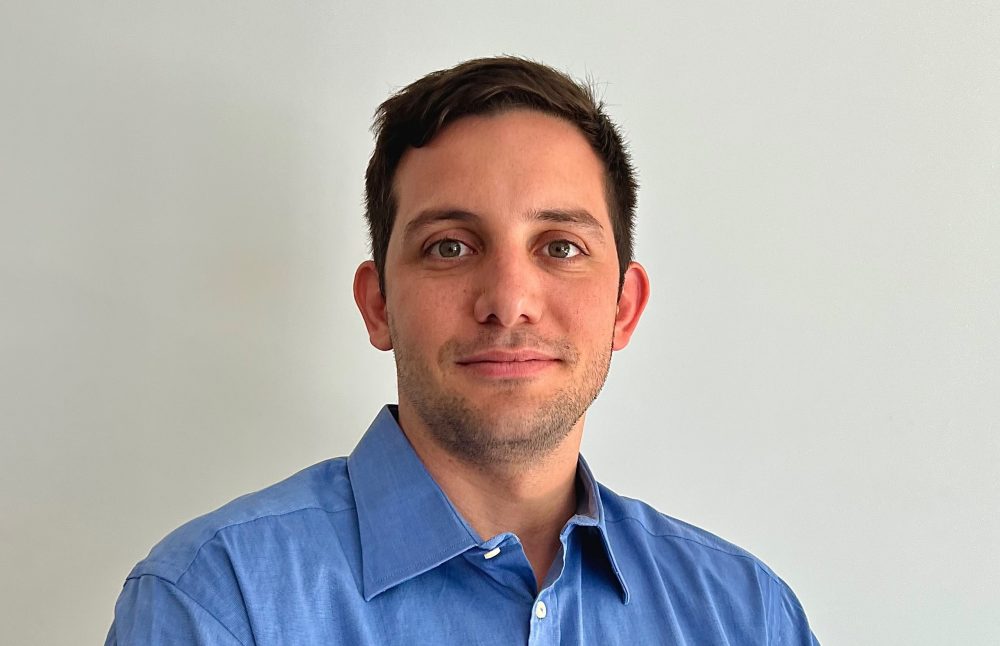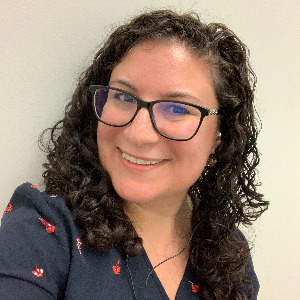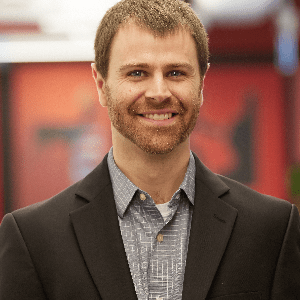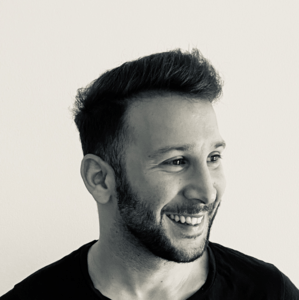I’m a computer engineer transformed into a ⚙️ passionate No Coder ⚙️. Reach out if you want to get introduced or learn more about the No Code world!
Lessons learned from a fractional CMO: Kasey Bayne
Ever wondered if your business could benefit from a fractional CMO?
Thinking you need some expert marketing help to meet your goals, but lacking the budget to hire full-time?
Kasey Bayne is here to help you.
Get an insight into the world of fractional CMOs and how they could help you grow.
You learn more about:
- What is a fractional CMO
- What traits does a Fractional CMO have
- Why hire a fractional CMO
- How to become a fractional CMO
And all these in less than 18 min.
Transcript
Kasey Bayne: So my name is Kasey Bayne, and I am a fractional CMO. Thank you so much for having me. I’ve worked with a bunch of different tech companies, largely in B2B, SaaS, going in and helping them solve really interesting marketing and sales programmes and problems, and really just helping them grow their companies.
Spyros Tsoukalas: Kasey, welcome to the Growth Mentor Podcast, this is going to be an exciting, exciting episode, at least for me, I don’t know anything about fractional CMOs. So let’s cut to the chase, could you tell us something we don’t know about fractional CMOs?
Kasey Bayne: Yeah, so from my point of view, being a fractional fractional CMO is really like the best job in the world, you get to do what you’re best at all of the time. Or at least that’s how I see a kind of like a marketing superhero. When a company is having a problem or at a particular growth stage, you get to go in and really help the team, mentor the team, help them develop metrics and automation, and set up really the tools that they needed to be successful.
Spyros Tsoukalas: So, I didn’t know anything about CMOS. So this is new already. Could you define a little? Could you go a little deeper on what CMOS do and like, what’s their role?
Kasey Bayne: Yeah, so in like a traditional organisation, I mean, even in like your average tech company, your CMO or your chief marketing officer is essentially in charge of everything in marketing, but more so than that, it can reach up to like the folks that are doing demand generation and lead generation social media and community. And then you have people that kind of work the middle of the funnel, and convert those leads into customers. Some CMOs, even look after the sales funnel itself, and the post sale experience, so that you make sure especially in a SaaS company, I always say that you’re essentially selling your customer every month when they renew their subscription. And you want to make sure that they’re finding value that they are being successful in using your product and helping your goals being met. So, a CMO has a ton of responsibilities. I’ve been an in house CMO, where I ran basically everything non technical, so everything support, sales, partnership, marketing, all of those kinds of tools kind of fall under the CMO bucket. So when you go into like, what does a fractional CMO?Because that sounds like a lot of things. And it definitely is. But really, what my what my role is, is that I go into different companies. And I really help them achieve a specific goal, or help them with a specific stage that they’re at in their business. And this is one of the interesting things that you see, working really in like the startup world is that companies grow and change so fast, there are different skill sets that you need for different points in time. So, I get to go in and really help them solve that specific problem. Whether it’s mentoring the team, sometimes the marketing manager has been working with the CEO, who has like, great experience, but it’s kind of reached the end of their marketing expertise. So I get to come in and help the marketing team get to the next level. Also help PM, you know, prepare for investors, develop their strategic plan for the year, and really build out like that marketing machine to help the team be successful.
Spyros Tsoukalas: So, let me clarify something that confuses me. Fractional, in my understanding has, it’s not like a full time job. Or it can be a combination of jobs within a company. And you can be doing that at another company as well. But you get involved with so many different departments. So how some that someone balanced balance, working with all those departments at different projects at the same time. It’s like this sounds like a nightmare or at the same time.
Kasey Bayne: Yeah, it is definitely a challenge. And the way that being a fractional CMO works for me is that I work with different companies, helping them solve particular problems. So in some companies, I work more with the sales teams in some companies I work more with, like the marketing or demand gen teams. And really, it’s like you’re essentially running your own business. So definitely being organised and having like, honestly, like a bit of that that inner sales person in YouTube because you’re essentially trying to go out and sell your expertise to companies. I’ve been really lucky where I had, you know, a great network. So I found I find a lot of companies through word of mouth or from Growth Mentor. So being able to combine all of those projects and having a great project management tool. Personally, I use a sauna and harvest together. So that helps me plan out all of the tasks that I need to do for each client. But also keep track of like leads and kind of upcoming future deals so that I keep my own sales funnel full as well.
Spyros Tsoukalas: Pretty, pretty, pretty clear. So, I know that you have worked or you have experiences you have had experiences with both smaller companies and larger companies. So, could you help us understand the difference between CMOs and fractional CMOS, given the different sizes of the companies that you have worked with?
Kasey Bayne: Yeah, there’s definitely a difference. And if any of your listeners have been in the same situation, they’ll see it as well. I’ve worked with really small teams where basically there was like a marketing team of one. And with those kinds of things, the role that I play as a fractional CMO is definitely more of like a hands on role, which is great for me, because I love to, you know, roll up my sleeves, and still kind of like, keep inside, you know, keep in the weeds of what, what is happening in marketing technology and using the tool. But when you work with those smaller companies, you get to do things like you know, creating landing pages, writing great sales copy, looking at, you know, email automation, setting up Google Analytics reports. All of those kinds of things in a smaller company, where they just don’t have the expertise, and kind of the subject matter experts for it. I also love those cases, because you get to work directly with the founders and the CEO. So I’ve put together like board decks, done training with, with CEOs and founders, help them really like understand the metrics that are important to investors when they go out and do their pitches. On the flip side, when you look at larger companies, it’s definitely more of like a specific problem that you’re going to solve, or like a specific stage of their business. So with larger companies, I’ll often go in and be tasked with something like okay, we just bought HubSpot. What what do we do now? How does this like we paid them the money? How does this you know turn into the marketing machine for us? Or we’re going for for another round of funding in a few months? Can you help us better understand what metrics what our metrics are, what our trends are. So larger companies, usually a very specific problem or project. And with a smaller company, you kind of get a little bit more involved and roll up your sleeves.
Spyros Tsoukalas: Fractional CMOS sound like superheroes? So, let’s say that we have to understand how good or like we have a candidate for a position like a fractional CMO, what are the traits that they usually have? And I mean, in terms of age, do they work remotely? Are they generally specialists? Like how, like, what are the skills that they are having, usually, and you could bring examples of how you became a CMO as well.
Kasey Bayne: Yeah, so um, part of how I got started, as a fractional CMO is I had done, you know, I’d worked in tech for a long time, at this point, probably like seven years or so. And I started doing mentoring with an accelerator, here in BC called BC Tech. And I got to work with a lot of startup companies and really go in and help them with their marketing, understanding their customers setting up their, you know, sales funnel. And I remember coming home and being like, I wish I could do this all the time. And that’s when I realised you know, what I can, there actually is a job, you get to do this kind of thing all of the time. And it’s one of such a cool thing. And you know, the job that you you kind of imagined you’re having you’re yourself growing up. And the job that I have now, it’s something that I didn’t even know existed. So it’s so great to be able to have this opportunity to go and work with different companies. And now like, I don’t know, six or seven years after I started with my first accelerator group, I get to work with a bunch of different clients. And I think really the most important traits are really about, like flexibility, creativity, being analytical, and having kind of like that management or mentorship quality, because that’s really important to be able to. It’s one of those, you know, as cliche as the saying is like, you want to leave the place better than you found it. And so you want to go in and really help the team level up in areas that they want to learn about, that the business needs, like really understanding that and coming in with a fresh set of eyes and really being able to use your past experience is the most valuable. So you don’t need to have like 20 years of experience to be a fractional CMO. But having experience as a CMO, as a director of marketing, working with lots of different companies it really serves you well in, in going into to this kind of role. As for the specialist versus generalist, there is a case for both, I think you can definitely be a specialist in one area or another. But as a CMO, like having that overall viewpoint, and outside of just, you know, traditional marketing, like stretching toward, you know, customer success, sales, but even products and product marketing is so important, because you’re able to have a bit bigger impact. And you’re able to, you know, help the core marketing team be more productive and more efficient as well.
Spyros Tsoukalas: Awesome. Like, you covered everything that I asked, its, I asked, like four questions in one. So, can you help me like bust the myth? So my instinct, when I hear about fractional CMOS in startups, my instinct goes to, hey, we are a startup, we don’t have the budget to hire a full time marketing guy. So we can hire someone fractional that knows their they know their stuff. So they will help us. But I’m not sure that’s the only case or that’s even a case for hiring a fractional CMO. So could you help me understand how a company will decide? And why to hire a fractional CMO?
Kasey Bayne: Yes, that is a great question. And honestly, something that I’ve helped a bunch of founders in my network with, without even you know, working with their company, just kind of as a knowledge share. When you’re starting out as a, as a startup, yeah, you don’t have a huge budget, and it can be hard. So you think you know what, I’m gonna hire a fractional CMO. But I think one of the things that you want to watch for is some, you know, everyone kind of defines their own role differently. And some CMOS focus more on like, the high level strategy, whereas some are able to get into the weeds and actually do the work. So I think sitting down and thinking, like, what do I actually need, if you don’t know what you need, that’s okay, too. You can have somebody come in and you know, sit with you for an hour, jump on Growth Mentor, and, and book a session so that you can talk about like, Hey, this is where we are, as a company, I don’t know if I need like a maybe a senior marketing manager who maybe can see the strategy, but also do the work. Or maybe I need a fractional CMO. Or maybe I need a fractional CMO who like creates the strategy, and then I hire somebody to run it. So really understanding that that use case and not kind of looking for, you know what I want someone super senior who’s also going to do all of the work is kind of a honestly like not the best bang for your buck, because you want to have the senior person doing what they’re best at. And then having somebody more junior to go and follow through with a plan in most cases. So yeah, you have the case where somebody you can’t afford to hire somebody senior. Other cases are, you know, what, we are stuck, like, we’ve done a bunch of marketing, the team is great, they’re super smart. We just don’t know what to do next. Or the things that we were doing that worked last year, do not work this year. This is super interesting. And a really common, especially with like, the rollercoaster of life that we’ve been on the last few years. A lot of things that we were doing in the past and that you can rely on like, pretty reliably are not working anymore. So how do you figure out what comes next? How do you figure out how to set up an experiment so that you know if something is working or not. So helping you kind of get to that next stage, whether it’s, you know, that feeling of being stuck, or just trying to increase your growth rate, if you’ve been growing reliably at a certain percentage, but it’s like, okay, I want to double that. But I don’t really know how. Work harder is not like a great strategy, you actually have to have ideas and a plan of what you want to do. So, that’s another great reason to hire a fractional CMO. Or, if you need more analytics, metrics, automation, all of that kind of thing. I can definitely nerd out on analytics for a long time. I will not do it on this session. But if you need a better understanding of your numbers, what’s working, what’s not working, not just in terms of like number of leads, but really in terms of like what is the lifetime value of customers that we bring in through webinars? Those are the kinds of questions that the right fractional CMO will be able to answer for you.
Spyros Tsoukalas: I’m sure that if someone with your energy joins the team, everything is seems like right away. So we have been highlighting the advantages of hiring a same fractional CMO or a fractional CMO joining a team are there any disadvantages?
Kasey Bayne: You know, it can be hard to find, to find the right fit with any kind of hiring. And I think you want to make sure that the person is committed to what you’re doing. And this is something that you find when you hire contractors or consultants kind of in any area of the business, is you want to make sure that they are like really dedicated to the team. Even if they’re only spending, you know, a day a week or, you know, 10 or 20 hours a month with your company, making sure that they’re able to really be a part of the team. So your team trust them, and they’re able to really understand like, who your customer is, and doing that groundwork, okay, these are the things that we’ve tried. This is all the data that we have, why don’t you do some calls with like, five of our customers and five prospects who didn’t convert, so that way, like, as a fractional CMO, you can really understand things and just, like, get a real feel for the business and the problem that you’re solving.
Spyros Tsoukalas: Almost last question of the day, thanks for clarifying even the, let’s say, my traits of a CMO. So let’s say that I’m experienced in marketing, and I have been spending like years in different areas, different domains, or I am a specialist, and I am extremely good at CRO or whatever, corner marketing. So, how do I become a fractional CMO? Like? What what are the steps that I like you would suggest someone to follow?
Kasey Bayne: Yeah, so um, is that it is one of those things where like, you know, I wish there there was like a playbook and there are tons of resources online. But I’d say the first is really like putting yourself out there. You need like a fancy website or anything like that? No. You can make like a Squarespace page, use a template they already have, show a little bit about your experience and projects that you’ve worked on. And then just put yourself out there. So put a post up on LinkedIn telling people that, you know, you’re gonna start doing fractional CMO work on the side. And it is a great thing to be able to do, even like, while you’re working to be able to, you know, spend some nights and weekends working on side projects, before you kind of figure out if it’s for you, or not much like when you’re starting any kind of side project, you don’t necessarily want to jump all in until you kind of tested the market and figure out your niche. I think the niche thing is also really interesting is to kind of figure out, okay, what is where’s my experience? What do I specialise in? And what do I love to do? Because there are a bunch of projects. And I mean, I did this when I started, is like, Take Google ads, for example. There are people who are experts in Google ads, I can do them. I’ve done them before. Do I love to do them? No. Did I take on a project where 80% of the work was Google ads? Yes, I did. But looking back now it’s one of those things are like, Okay, I have a much clearer picture of what I wanted to be doing. And kind of as you grow your business, and as you grow your client base, you’re able to focus on those things that you do best, so that you’re able to provide the most value for your customers.
Spyros Tsoukalas: Kasey, thanks for being so detailed in your essence.
Kasey Bayne: Oh, thank you.
Spyros Tsoukalas: So, I would like to ask, what’s the range and the format’s of partnerships, or contracts or whatever those are that companies can engage a CMO through? Like, is it coming from like, what what are the sizes that you have seen? Like, I guess that it’s pretty custom? In every case, like there are different cases, but like, what is your point of view about that?
Kasey Bayne: Yeah, so that’s a great question. For myself, I offer a lot of flexibility, really, depending on what the client needs. And also like my own availability, and where I’m able to, to add the most value. So, I have clients where I’ll come in, you know, once a quarter, I’ll spend half a day with their team doing planning, then I’ll spend a couple of days after putting a report together, company goes through and kind of follows the plan every quarter. So that’s like a little bit more budget plan, budget friendly, and a great way to start out. I also have other clients where you know, they may have a marketing team already. But the marketing manager or the marketing lead just kind of needs like a senior expert to bounce ideas off of, to get feedback, have someone to ask like those, those challenging questions to help them grow as a marketer. So I have clients like that, where I just meet with their marketing manager, once a week, we spend an hour together, sometimes there’s occasional follow up and that kind of thing. And then you have the bigger projects where it’s either like, you know, what, for three months, or six months, I’m going to spend like one or two days a week with your company. And we’re going to make the plan, we’re going to follow through the plan, and really like stepping into the CMO role for that period of time to be able to support to support the team and support the company. So, I’d say lots of flexibility. I usually like to start small to make sure that it’s a fit, that I’m able to bring value to the client and you know, are a good fit in working together and then see how things can grow from there.
Spyros Tsoukalas: Kasey, thank you for taking the time to join our podcast today. I hope that the listeners will feel as energised as I feel right now to continue my day.
Kasey Bayne: Thank you so much for having me. This was great.
In this episode


Passionate about marketing, tech, and helping businesses grow, I’m an experienced marketing leader and consultant. With over a decade of marketing experience, I’ve spent time building marketing and sales channels at FreshBooks, Olark Live Chat, and other companies across Canada and the US.
Join the community
Enjoy the peace of mind that advice is always only one Zoom call away.

